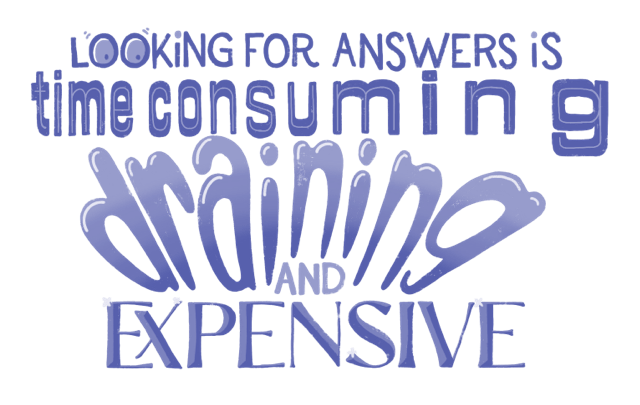4 Reflections From Years of Living With Chronic Pain
What health issue have you spent the most time seeking treatment, only to end up with the poorest results? For me, it’s my chronic neck pain. The list of things I’ve tried for my neck pain takes up multiple pages in a document on my computer–and very few of those things improved my pain levels.
A recent comment on my Instagram page described a woman’s journey of treating her migraines with more than 7 different methods that were all ultimately ineffective. It left her feeling pretty hopeless. I can understand that awful feeling. So many people with chronic illness have been in this situation, where we pursue appointments, tests, treatments – everything we can think of, but we end up stuck at square one with the same symptoms. It’s very discouraging when doctors say the testing is inconclusive and out of ideas for a painful medical problem. Lupus has a lot of potentially painful aspects, from joint pain to mouth ulcers, and the symptoms can be hard to treat. These are some reflections I have had after living with lupus and severe chronic pain for years.
It’s very discouraging when doctors say the testing is inconclusive and out of ideas for a painful medical problem. Lupus has a lot of potentially painful aspects, from joint pain to mouth ulcers, and the symptoms can be hard to treat. These are some reflections I have had after living with lupus and severe chronic pain for years.
Seeking answers is exhausting
Looking for answers is time-consuming, draining, and expensive. I’ve found that doctors rarely want to solve things to my satisfaction – or solve things that aren’t glaringly problematic, so I have to bring the initiative and push for next steps. I keep pursuing medical therapies because I am not satisfied with my quality of life. I realize that there may truly be no answers, but I’m not ready to give up. I’m 32 with 2 young boys and I’ve already missed too much of my life.
So, when I feel dismissed by a medical professional, I usually seek a second opinion. When a new issue pops up, I don't hesitate in seeking care. When something doesn’t work, I’m likely to show up again and ask to try something else. I have so much to live for – so much I want to do – that I’m willing to keep taking those exhausting steps. It's a lot of work on my end. Unfortunately, not everyone around me agrees with my actions.
Accused of faking pain
This lesson has hit home for me in a new way recently. Someone that I used to consider a close friend tried to claim that I have Munchausen syndrome. This is a mental condition where people seek medical care repeatedly for symptoms they essentially make up, exaggerate, or cause themselves.
I could hardly believe that taking action to improve my health led to being accused of faking my chronic pain and illness. I’m trying to get better (and have seen several real improvements), but my continued search for answers came across to this person as attention-seeking.
Featured Forum
View all responsesWhile I know that their claim is entirely without truth, it is still deeply hurtful, offensive, and demeaning. I wish I could put a protective barrier around everyone suffering from a chronic illness. A barrier that would protect them from people who don’t believe they are telling the truth, minimize their pain, or give unsolicited advice. We go through enough without having to face these additional burdens from others.
Chronic pain is scary
Knowing that you might have to live the rest of your life with chronic pain is scary. At times, the uncertainty is worse than the actual pain. How long will it last? How bad will it be? Will I be able to enjoy my favorite activities again, ever?
Then there’s the sentiment that pain begets pain. For example, my lupus makes my knees hurt so I rest in bed. Then the lack of movement makes my neck pain worse. Because so much hurts, I end up in a cycle that causes the pain to escalate.
And the longer you live with chronic pain, the harder it is to get rid of it. There's quite a bit of science behind that, unfortunately. I have read that chronic pain may rewire our brains over time, making the mountain to get out from underneath the pain higher every day. It's possible to unlearn pain, so to speak, but there are no assurances. It's scary.
Around 5 years into my chronic neck pain, a physical therapist told me I would never achieve a pain level of zero again because it had been too long. It was a very discouraging statement that didn’t help me work toward my goals. I want to believe that it’s still an option to live without pain – at least some of the time.
I am angry about poor medical care
I've had many medical professionals throw symptoms under the label of fibromyalgia for all sorts of reasons. And I've also had medical professionals work to unpeel that label to find something legitimate underneath.
In 2021, I wrote an article about why I think fibromyalgia can be harmful and I find that sentiment to ring truer every year. I wasn’t just tired from fibromyalgia; I had sleep apnea. I didn’t experience joint pain from fibromyalgia; I have lupus and Sjögren’s. I’m not experiencing muscle pain from fibromyalgia; it’s a response to nerve pain in my spine.
It's not “just fibromyalgia." I am still learning how much harm that diagnosis has caused in my life and wondering how much damage it has done to people throughout the world. But you don’t need a fibromyalgia diagnosis to be blown off by medical professionals - it can happen for any reason at any time. If a doctor underestimates your symptoms it can lead to delays, complications in care, and possibly more pain.
Do you live with chronic pain? What are some of your experiences of trying to manage it?

Join the conversation